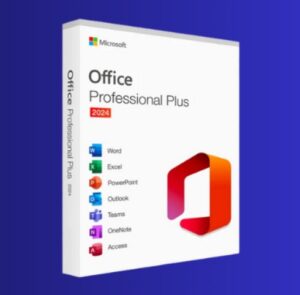Your credit limit will determine how much you may borrow with a credit card, although this is often a few hundred or a few thousand pounds.
Table of Contents
1. How do I choose a credit card?
When determining which credit card is best for you, it can be difficult to know where to begin because there are so many different options. Think about the specific things you need a credit card for to get an idea of how to approach the situation. A 0% purchase credit card, for instance, enables you to spread out your monthly payments over a number of months without incurring interest (although keep in mind that after the 0% period is up, interest will start to accrue).
In contrast, if you already have credit card or store card debt and are paying interest, you might save money and pay off your debt more quickly by transferring it to a credit card with a 0% balance transfer fee. Once more, this indicates that you will not be required to pay any interest on your debt for a set time .
2.How much can I borrow?
Your credit limit will determine how much you may borrow with a credit card, although this is often a few hundred or a few thousand pounds.
Your credit score (more on this later), your income after fulfilling your normal financial obligations, and if you have other forms of credit, such a mortgage, loan, or overdraft, will all be taken into consideration by your card issuer when making this determination.
3. How long does it take to get a credit card?
Nowadays, a lot of credit card issuers provide online applicants immediate approval for credit cards. Others don’t decide for around five to ten days.
Within 10 working days after your credit card application has been accepted, you should get it. Once you receive the card, you will often need to activate it by dialling an automated number. You may use your new credit card as soon as you’ve completed that and obtained your PIN.
4. change my mind after I’ve applied?
Yes. You have 14 days (the “cooling-off period”) from the time you receive your card to let the provider know if you’ve changed your mind and wish to terminate the contract. If you have previously used the card, you have 30 days to settle the remaining debt.
5. Can I pay off my credit card debt early?
Yes, you can pay off your credit card debt early. Paying off your credit card debt early can help you save money on interest and help you improve your credit score.
6. Can I get a joint credit card?
Yes, you can get a joint credit card. Many banks and credit card companies offer joint credit cards that allow two people to share the same account. These cards typically require both parties to be responsible for the account and any debts incurred.
7. Can I use my credit card abroad?
Yes, you can use your credit card abroad. However, you should check with your credit card issuer to make sure that your card is accepted in the country you are visiting and to find out what fees may apply.
8.What’s the difference between a credit card and a prepaid card?
A credit card is a type of loan that allows you to borrow money from a bank or other financial institution. You can use the card to make purchases and pay for them later, with interest. A prepaid card is a type of payment card that is pre-loaded with funds. You can use it to make purchases, but you cannot borrow money from it.
9.If I don’t need to borrow, should I still get a credit card?
Yes, it is still beneficial to have a credit card even if you don’t need to borrow. Having a credit card can help you build your credit score, which can be beneficial when applying for loans or other financial products in the future. Additionally, many credit cards offer rewards and other benefits that can be useful.
10. What is the ‘APR’?
The APR (Annual Percentage Rate) is the annual rate of interest charged on a loan, including any fees or additional costs associated with the loan. It is expressed as a percentage and is used to compare different loan products.
11.Will the interest rate on my credit card change?
It depends on the terms of your credit card agreement. Some credit cards have variable interest rates that can change over time, while others have fixed interest rates that remain the same. You should check your credit card agreement to see what type of interest rate you have and if it can change.
12.What is a balance transfer fee?
A balance transfer fee is a fee charged by a credit card company when you transfer a balance from one credit card to another. The fee is usually a percentage of the amount transferred, typically between 3% and 5%.
13. What is a money transfer fee?
A money transfer fee is a fee charged by a financial institution for transferring money from one account to another. This fee can vary depending on the type of transfer, the amount being transferred, and the financial institution.
14.What happens if I can’t keep up with my repayments?
You will be assessed a fee (usually approximately £12) and the late or missing payment will be recorded on your credit report, which may have an impact on your future ability to get credit.
A 0% APR deal on your card is also likely to expire, at which point you’ll have to start paying interest on your balance.
It’s advisable to speak with your lender as soon as you have concerns about making your payments since they might be able to work out a plan with you to assist you pay off your obligations.
15.Will I be charged if I withdraw cash on my credit card?
Yes, most credit cards charge a fee for cash advances. The fee is usually a percentage of the amount withdrawn, and it may also include an additional flat fee. Check with your credit card issuer for details on their specific fees.





More Stories
Great Expectations Floor Restoration Boise: Bringing Your Hardwood Floors Back to Life
On-Site Public Insurance Claims Adjuster Los Angeles: Why Local Expertise Makes All the Difference
Renovate Builders Remodeling Seattle: Transforming Homes with Expert Craftsmanship